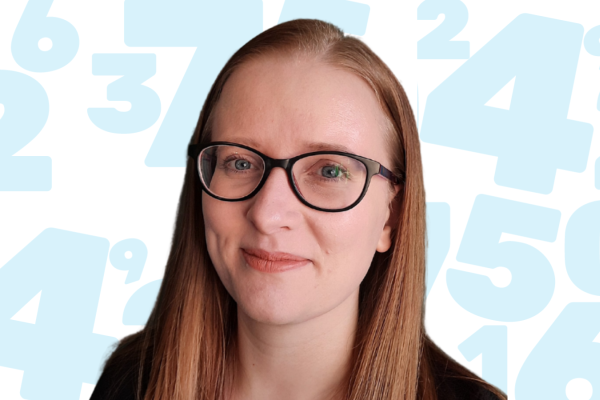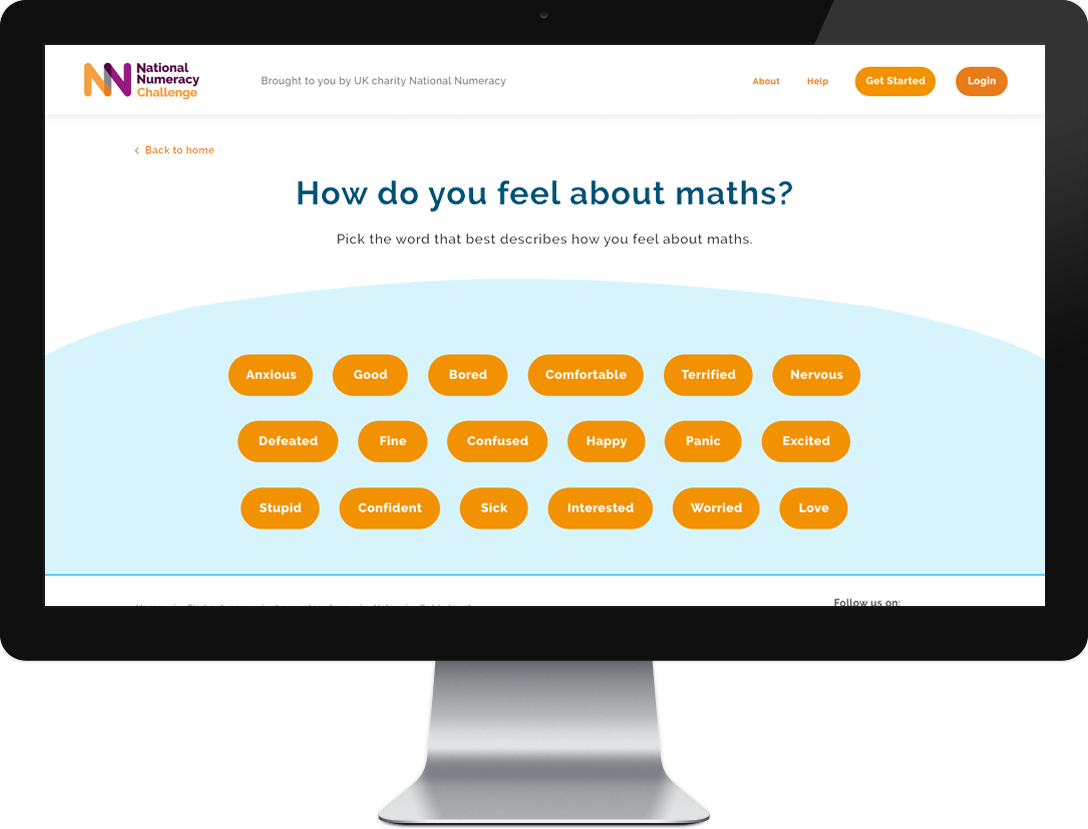It’s important to remember that it is very common to feel anxious, stressed or nervous when faced with numbers. If someone feels this way, be patient and listen, acknowledge their anxieties and give them the space to talk about their feelings. It is helpful for them to understand that their feelings are not unusual. For many, having their worries acknowledged and feeling supported, can be a powerful first step towards overcoming their anxieties.
For those who don’t feel confident with numbers, it can be helpful to know that many people struggle with maths – they are not alone. Remind them that we all find things difficult sometimes and that it is ok to make mistakes. Ask them to think of something else that they found difficult and persevered with, such as learning to drive or developing a new skill. Maths is like any other skill, where making mistakes is part of the learning process.
For many, their negative feelings towards maths stem from their school experiences. It can be helpful to talk about the difference between the maths that’s really needed in life and the maths that people often associate with school memories like algebra and trigonometry. Talk about how numbers are really used in life like organising appointments, managing a budget and dealing with measurements. Encourage them to think of some other examples of where they already use numbers in their everyday life and work.
You can also take this opportunity to encourage a growth mindset. Growth mindset is believing that whatever your starting point, you can improve. Talk about how everyone can improve, even if they’ve struggled in the past. The reasons some of us struggle with numbers are to do with our experiences, not any kind of natural ability or ‘maths gene.’ If someone has had a bad experience in school, it doesn’t mean they ‘can’t do maths.’
You may find that some people feel very positively about maths and find it difficult to understand why others struggle. Encourage them to think about why they feel confident with maths, such as supportive parents or a good education. It is important for everyone to appreciate that it is very common to feel anxious about numbers and this is due to our experiences rather than a lack of a natural ability.
So, give everyone the space to open up about their feelings, acknowledge anxieties, encourage a growth mindset and talk about how we really use maths in our everyday life and work this National Numeracy Day. Just click the links below to get all the resources you need.






